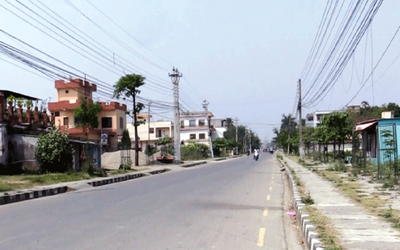The Asian Development Bank (ADB) is lending $150 million towards a $500 million project that will build a hydropower plant with a 140-megawatt capacity.
“Nepal has an energy crisis, and this is affecting badly economic prospects,” said Yongping Zhai, Director, Energy Division in ADB’s South Asia Department. “This energy project is a means to stop this crisis.”
Electricity demand is growing at 10% a year, but lack of investment means supplies are not keeping up. Blackouts of up to 18 hours a day in the dry season are common, even in the capital Kathmandu. This forces businesses and households to use expensive and polluting diesel generators.
Nepal’s mountain ranges and many swiftly flowing rivers endow it with huge hydropower resources. However, the country’s total installed power generation capacity is just 700 megawatts – largely from hydropower. This represents only 1.5% of Nepal’s hydropower potential.
The 140-megawatt hydropower plant, to be located around 150 kilometers west of Kathmandu on the Seti River in Tanahu district, will generate electricity year round.
To ensure steady supply even during the dry winter months of November through April, the plant will be fed from a 7.26 square kilometer reservoir, making it Nepal’s first major hydropower plant with water storage capacity and a sediment flushing system. Around 85% of Nepal’s existing plants use the run of the river to generate power, which makes for lower output during the dry season. None have the means to cope with Nepal’s sediment-heavy rivers.
In addition to building the plant and a transmission system, the project will also provide at least 17,636 homes in the area of the hydropower plant with direct connections to the national power grid. Only around one-third of households in Nepal are connected to the electricity distribution grid, with connection rates much lower in rural areas.
The entire project will cost around $500 million and will be co-funded by ADB and the Japan International Cooperation Agency lending, the European Investment Bank, and the Abu Dhabi Fund for Development.
The hydropower plant’s construction will follow best international practice. ADB will ensure that the appropriate social and environmental rules, procedures and guidelines are adhered to. The project company, Tanahu Hydropower Limited, will invest in health and education programs as well as income and livelihood skills training for the local communities. ADB and its partners carried out climate change impact modeling work on the project, and will do more assessments prior to its construction.
ADB, based in Manila, is dedicated to reducing poverty in Asia and the Pacific through inclusive economic growth, environmentally sustainable growth and regional integration. Established in 1966, it is owned by 67 members – 48 from the region.
- TANAHU HYDROPOWER PROEJCT: A Significant Achievement
- Apr 15, 2024
- AMBASSADOR HANAN GODAR: Sharing Pain With A Nepali Family
- Mar 30, 2024
- VISIT OF KfW AND EIB TO NEPAL : Mission Matters
- Mar 25, 2024
- NEPAL BRITAIN SOCIETY: Pratima Pande's Leadership
- Mar 24, 2024
- NEPAL ARMY DAY: Time To Recall Glory
- Mar 15, 2024
















